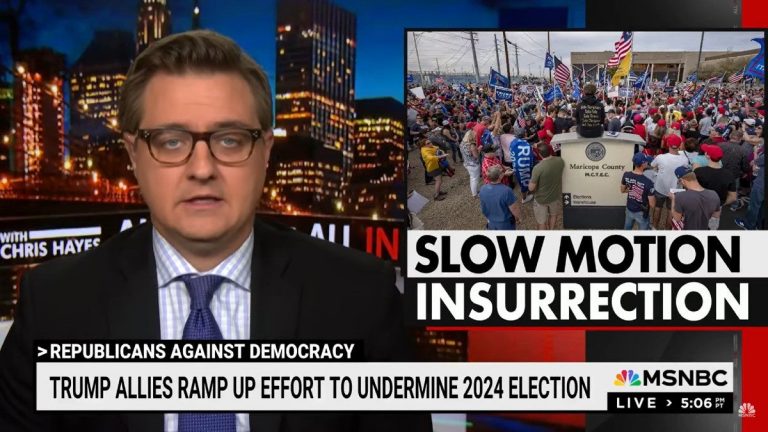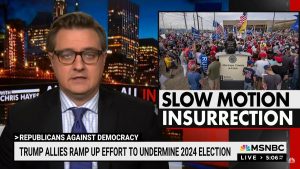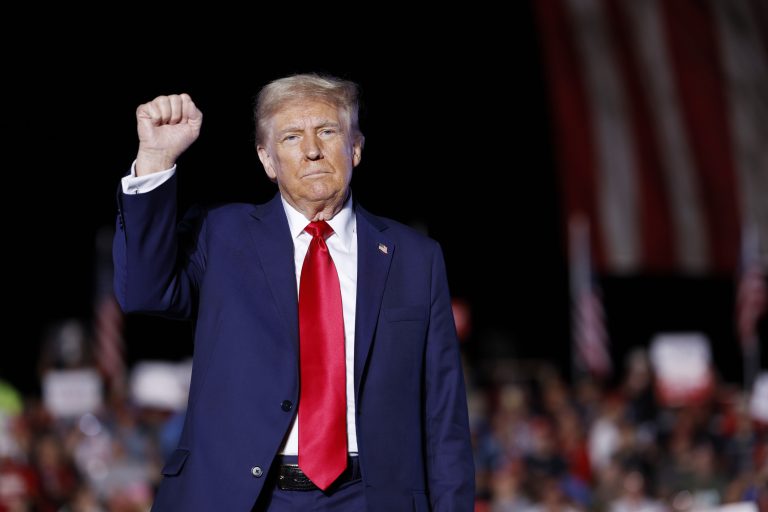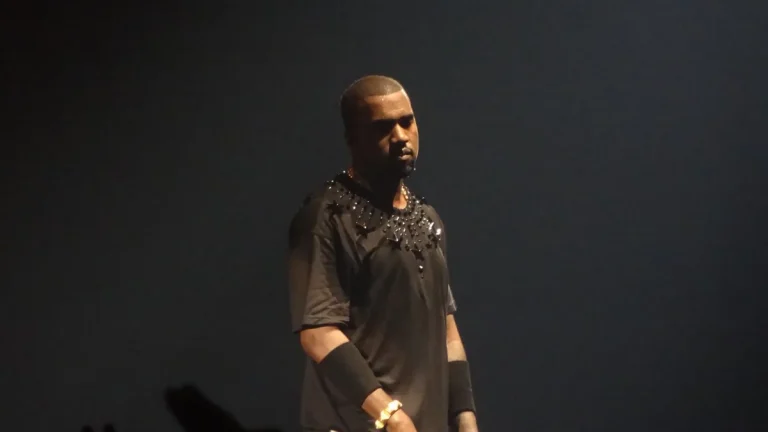Utilizing a slime mold algorithm, astronomers have mapped the cosmic web, enhancing our understanding of galaxy evolution. This breakthrough research provides deeper insights into how large cosmic structures influence galaxies over time. In 2010, an experiment in Japan using slime mold to replicate the Tokyo railway system led to the development of a concept called …
Read More
Slime Mold Algorithms Unlock Secrets of Vast Cosmic Structures
Who are the top 10 players to watch at the ICC Women’s T20 World Cup 2024?
From Smriti Mandhana to Abtaha Maqsood, Al Jazeera picks the 10 players who could light up the tournament in the UAE.
Some of cricket’s finest talent will be on display at the ICC Women’s T20 World Cup 2024, which gets under way with a match between Bangladesh and Scotland in Sharjah, the United Arab Emirates, on Thursday.
All 10 teams will rely on the experience of their big-name players to lead them all the way to glory in the October 20 final in Dubai.
Al Jazeera picks the 10 players to watch out for at the ninth edition of the tournament.
Chamari Athapathuthu: Sri Lanka
Athapathuthu, with her impressive all-round skills, will be at the forefront of Sri Lanka’s campaign in the tournament. The Sri Lankan captain is ranked fifth in the ICC’s Women’s T20 all-rounder standings and recently led her country to their first-ever Asia Cup title. The 34-year-old bowls accurate off-spin and can be an explosive batter in the shortest format of the game. Athapaththu has made 246 international appearances since her debut – at the age of 19 – in the T20 World Cup in 2006 and boasts a wealth of experience in franchise T20 cricket as well.

Deepti Sharma: India
Sharma will be crucial to India’s chances as her nation’s highest-ranked bowler (2nd) and all-rounder (3rd) in the T20 format. The 27-year-old off-break bowler and left-handed batter has appeared 211 times for her country. The cool-headed Indian star was one of the leading performers at the Women’s Hundred tournament in England, where her monstrous six-off sealed the title for London Spirit.
Fatima Sana: Pakistan
Sana, who made her debut in 2019 at the age of 18, is the rising star of Pakistan cricket and its great hope following its difficult recent run. Although yet to score a fifty for her country, the fast-bowling all-rounder has scored a minimum of 20 runs in her last six international innings. The young captain will look to add more wickets to her 31 in dismissals in T20s if Pakistan are to make a mark on tournament.
Smriti Mandhana: India
Mandhana has been a mainstay of India’s batting since making her debut in 2014. The Indian vice-captain is the second highest run-getter in T20 internationals with 56 half-centuries to her name. The 28-year-old from Mumbai led her Bengaluru franchise to their maiden Women’s Premier League title earlier this year and will look to help India do the same in T20 World Cup.
Smriti Mandhana claimed her maiden ICC Player of the Month award for a spectacular showing in June 👌
More ➡ https://t.co/jmp8DAqanM pic.twitter.com/LNSE0ylygI
— ICC (@ICC) July 9, 2024
Beth Mooney: Australia
Opening batter Mooney currently tops the ICC’s T20 batter rankings and is one of the many big-name players in an experienced Australian squad. The 30-year-old, who made her debut for Queensland aged 16, has registered two centuries and 23 fifties in 95 innings for the reigning champions.
Nahida Akter: Bangladesh
Akter is one wicket shy of 100 in T20 internationals with an average of only 16. The left-arm finger spinner has best bowling figures of 5-8 in 87 T20 internationals at only 24 years of age. Akter claimed 2-17 on debut nine years ago as a 15-year-old against Pakistan in Karachi.
Abtaha Maqsood: Scotland
A leg-spinner of great promise, the 25-year-old has already claimed 54 T20 wickets at an average of 15 in 53 matches for Scotland. Maqsood’s contributions could elevate the Scottish team to the next level, especially given the spinner-friendly conditions in the UAE. The dependable spinner could turn this World Cup into a breakthrough international tournament for herself and her country, who are making their T20 World Cup debut.

Laura Wolvaardt: South Africa
Wolvaardt will seek to captain her side to the final step having been runners-up at the last edition. The 25-year-old has a wealth of experience having made her debut as a 16-year-old in an ODI against England in 2016. The right-handed opening batter is fifth in the T20 rankings, her country’s highest in any discipline, and has one century and 11 fifties in 66 T20 innings for her country.
Sophie Ecclestone: England
Ecclestone is the highest-ranked bowler in both the ICC T20 and ODI rankings. The left-arm finger spinner has made 159 appearances in all formats for England at only 25 years of age and has 126 wickets in 85 T20 internationals at an average of only 14. Having made her debut for her country at 17, Ecclestone had claimed the number one ranking in T20s by the age of 20.
Hayley Matthews: West Indies
The West Indies captain currently enjoys the position of the world’s top all-rounder and is third in the batting rankings. Matthews’ reputation long preceded her international debut at the age of only 16, and at 25 she has already amassed 180 appearances for West Indies and has two centuries and 13 fifties in 96 T20 internationals.
All Of The Celebrities Who’ve Endorsed Kamala Harris and Donald Trump
Topline
Celebrities have weighed in on the 2024 presidential race in a variety of ways in recent weeks, with some of the biggest names in politics and Hollywood backing a particular candidate in hopes of moving the needle this November.
Harrison Butker of the Kansas City Chiefs warms up before the game against the Philadelphia Eagles … [+] on Feb. 12, 2023.
Key Facts
Kansas City Chiefs Kicker Harrison Butker—who made headlines earlier this year after giving a controversial college graduation speech that touched on Catholic values, abortion, IVF and a woman’s role in society—endorsed Donald Trump on Friday, calling him “the president who is going to be the most pro-life president” in a Fox News interview.
Musician Bruce Springsteen shared a video to his Instagram saying he would support Kamala Harris and Tim Walz in November because they “are committed to a vision of this country that respects and includes everyone, regardless of class, religion, race, political point of view or sexual identity.”
Actor Zachary Levi, who stared in the DC Comics “Shazam!” films, endorsed Trump while moderating an event with former candidate Robert F. Kennedy Jr. on Sunday, saying he would have voted for Kennedy “in a perfect world” but now believes Trump is going to help “take back this country.”
Pop star Chappell Roan followed up a TikTok video posted last week—in which she said she would not endorse a presidential candidate—with a second video strongly criticizing the Democratic party, but saying: “Yeah, I’m voting for fucking Kamala,” she said, mispronouncing the vice president’s first name.
Actress Jennifer Lawrence told People Magazine she is supporting Harris because “abortion is literally on the ballot” and she believes Harris “will do whatever she can to protect reproductive rights.”
Actress Fran Drescher posted an animated video to TikTok set to the theme song of her famous show “The Nanny” supporting Harris, with lyrics like “She’s got brains, she’s got balls and Tim Walz/She’ll soon be President Harris.”
Joe Germanotta, a New York City restaurant owner and father of pop star Lady Gaga, endorsed Donald Trump on Fox News and called the former president “a patriot” (his daughter has not yet endorsed a candidate but in 2020 congratulated Joe Biden and Harris on their win, saying she had “nothing but love” for the pair and calling them her “heroes” in 2021).
Get Forbes Breaking News Text Alerts: We’re launching text message alerts so you’ll always know the biggest stories shaping the day’s headlines. Text “Alerts” to (201) 335-0739 or sign up here: joinsubtext.com/forbes.
What Other Celebrities Have Endorsed Harris?
A number of the biggest names in Hollywood came out in support of Biden before he dropped out of the race, before turning their support to Harris. Olivia Rodrigo, endorsed Vice President Kamala Harris by sharing a video of a speech the vice president gave promising to “stop Donald Trump’s extreme abortion bans.” Major Democratic fundraiser George Clooney, who used a New York Times essay to call for Biden to drop out of the race, lent his support to Harris and Barbra Streisand said she would support Harris because of her vow to fight for reproductive rights. Musician John Legend, who performed at the Democratic National Convention in 2024, posted he was “so ready” for a Harris presidency. Director Spike Lee, “West Wing” creator Aaron Sorkin and director Ken Burns hrew their support behind Harris, along with actresses Rosie O’Donnell and Jamie Lee Curtis. Robert De Niro, who narrated an advertisement for the Biden campaign, praised the president’s “selfless patriotism” in a statement that did not mention Harris but said “there is nothing more important for our country than defeating Donald Trump at the ballot box.” British pop artist Charli XCX brought Harris into the Gen Z fold by tweeting “kamala IS brat,” an endorsement that was met by Harris’ team changing the background photo on her X account to the “brat” green color and using the same font used on Charli XCX’s album of the same name. Rapper Cardi B, who in May said she wouldn’t be endorsing Biden, tweeted “AHAHAHAHA LETS GOOOOO I TOLD YALLL KAMALA WAS SUPPOSED TO BE THE 2024 candidate….” Pop musician Kesha said she plans to support Harris in November and, when asked how she felt about Vance, responded “f—- that man.” Beyoncé has not made a public endorsement but did give the Harris campaign permission to use her song “Freedom” in a video of her first official visit to her campaign’s headquarters, a rare approval from the superstar musician. Beyoncé’s mom and businesswoman Tina Knowles endorsed Harris with an Instagram post. Former President Barack Obama and his wife Michelle and former President Bill Clinton and his wife, former Secretary of State Hillary Clinton, have also thrown their support behind Harris. Former President Jimmy Carter, 99, reportedly told his son last week he was trying to make it to his 100th birthday so he could cast his vote for Kamala Harris. “Sex in the City” actress and former New York gubernatorial candidate Cynthia Nixon threw her support behind Harris and her Vice Presidential pick, Minnesota Gov. Tim Walz, in a post that read: “I’m Walzing on air!” Billionaire Mark Cuban, who previously said he was committed to voting for Biden, has also supported Harris and endorsed Walz as her running mate, calling him someone who “can sit at the kitchen table and make you feel like you have know him forever.” Actor Tony Goldwyn, Republican political commentator Ana Navarro, comedian Mindy Kaling and actress Kerry Washington each supported the Harris-Walz campaign by hosting one evening of the Democratic National Convention. Nick Offerman, Jane Fonda, Ben Stiller, Kathy Griffin, John Stamos, Ed Helms, Tiffany Haddish and Ike Barinholtz were among those who appeared on a “Comics for Harris” virtual rally via Zoom, which reportedly raised close to half a million dollars for the Harris campaign. Over Labor Day weekend, a fundraiser for the Democratic ticket in Southampton, New York was hosted by Vogue editor-in-chief Anna Wintour and fashion designer Tory Burch, among others. Actors Matt Damon and Lin-Manuel Miranda will attend fundraiser in New York City in September—for which tickets are listed at $25,000 per person—to support the Kamala Harris-Tim Walz ticket, Bloomberg reported. Actress Aubrey Plaza posted a photo of herself on Instagram holding Grumpy Cat—the face of a famous meme—with the caption “HARRIS 🇺🇸 WALZ. Mel Brooks said he was “all in” for the Harris and Walz ticket in a post to social media holding his dog, adding “I don’t have a cat, so a dog will have to do!” Stevie Nicks did not name a particular candidate when she encouraged her followers to vote in an Instagram post this week, but signed her message “Childless Dog Lady.” Billionaire pop star Taylor Swift endorsed Kamala Harris in an Instagram post minutes after a debate between Harris and Donald Trump wrapped up, with a photo of her holding her cat that has since been recreated by several other celebrities. After declining to endorse a candidate in 2020, Martha Stewart said at the Retail Influencer CEO Forum she will supporting Kamala Harris in the election because she wants a president “who doesn’t hate New York” and “doesn’t hate democracy,” the Daily Beast reported. Pop star Billie Eilish and her brother Finneas, a songwriter and producer, made a video about National Voter Registration Day and Billie said they would both be voting for Harris and Walz “because they are fighting to protect our reproductive freedom, our planet and our democracy.” Famous television scientist Bill Nye, in a video posted to the Kamala HQ TikTok account, called Trump a “climate change denier” and encouraged viewers to “vote with the climate in mind.” Nye participated “Geeks & Nerds for Harris” fundraiser on Sept. 28 hosted by “Wonder Woman” star Lynda Carter that will also feature “Star Trek” actors LeVar Burton and Anthony Rapp, actor Misha Collins of “Supernatural,” Star Wars actor Mark Hamill and others.
What Other Celebrities Have Backed Trump?
Former pro wrestler Hulk Hogan ripped off his shirt while on stage at the Republican National Convention last month to reveal a Trump-Vance campaign shirt underneath, and called Trump his “hero” and the “greatest president of the United States.” Musician Kid Rock has been vocal about his support of Trump in the past and at the RNC revamped his song “American Bad Ass” to include references to Trump. UFC President and personality Dana White called Trump the “toughest, most resilient human being.” Rapper and reality TV star Amber Rose gave a speech at the RNC in support of Trump. Country music stars Chris Janson and Jason Aldean also appeared at the convention. Barstool Sports founder Dave Portnoy in January said voting for Trump over Biden was a “no-brainer.” Public-facing billionaires like Elon Musk and Steve Wynn have also supported the former president. Actress Rosanne Barr, a longtime conservative supporter of Trump, clapped back at Cuban’s endorsement of the Harris-Walz ticket and called the VP pick “another reason Harris is a disaster.” Rapper Azealia Banks last year said she would vote for Donald Trump in Novemebr and she appeared at a rally in Florida this summer. Actor Jon Voight has defended Trump on multiple occasions. 50 Cent’s 2023 song “Many Men (Wish Death)” started trending online after the assassination attempt of Trump last month. The rapper responded by putting Trump’s face on the cover of his “Get Rich or Die Tryin.’” While it’s hard to call the response an official endorsement, he did appear to support the president in 2020 before apparently backtracking. Other celebrities who have supported Trump in the past, but not outright endorsed him yet this election season, include Lil Wayne and “Happy Days” star Scott Baio. Trump thanked Brittany Mahomes, wife of NFL superstar Patrick Mahomes, for her “defending him” after she lashed out at social media users who criticized her for liking several pro-Trump posts last month (Mahomes has not formally endorsed a candidate). At a rally in Las Vegas, Trump thanked reggaeton star Nicky Jam for his endorsement, but apparently thought he was a she—saying: “Do you know Nicky? She’s hot. Where’s Nicky?”—before correcting himself after Jam climbed to the stage, saying, “Oh, look, I’m glad he came up.”
Who Has Not Endorsed Trump Or Harris?
Notable names missing from the list of public supporters include billionaire Michael Bloomberg, who called the decision “too important to rush.”
Further Reading
ForbesTrump: ‘I Hate Taylor Swift’—As Endorsement Has Minimal Impact On VotersBy Molly BohannonForbesElon Musk’s X Introduces Trump-Themed Hashtags After He Endorses Former PresidentBy Antonio Pequeño IVForbesBarack Obama Endorses Kamala Harris For President-Joining These Major Democrats (Full List)By Allison Beck
Further Viewing
Chris Hayes Warns Trump Is Already Ginning Up a ‘Slow Motion Insurrection’: ‘Same Playbook From Last Time | Video
“The election is now just 25 days away, and Donald Trump is very clearly planning to run the same playbook from last time,” Chris Hayes warned at the start of his MSNBC show on Friday. “We are watching a slow motion insurrection.”
“These final weeks of the campaign, Trump and his allies are laying all the groundwork, getting ready to reject the free and fair result of this election if he does not win. That’s plain as day. We all know it right?” He continued. “Today, JD Vance said he would help his running mate in another coup attempt, after refusing to acknowledge that Trump actually lost in 2020 over and over again.”
At this, Hayes ran a clip from a disturbing New York Times interview with the GOP vice presidential candidate in which Vance again and again refused to admit Trump lost the presidential election in 2020. In the interview Vance, who it should be noted has recently spread vicious, racist lies about his own constituents, also simultaneously lied about that election and implying the 2024 election is somehow already suspect. You can read more about it here.
“It’s not a question if it’s going to happen, like, if Donald Trump JD Vance could go out and be like, ‘Oh, we conceded defeat. We called Kamala Harris. No, again Trump and his running mate have told us over and over, again they will not accept defeat,” Hayes continued. “The people who work closely with him agree.”
At that, Hayes noted the chilling example of General Mark Milley, who recently said Trump is “fascist to the core.”
“That’s who we’re dealing with. And Trump’s allies are already taking action. Republicans are attempting to seed the ground for a legal battle, filing election-related lawsuits all over the country. According to democracy docket, voting rights news platform that tracks election litigation, the Republican Party has been involved in 97 lawsuits so far this election cycle. That’s more than three times the number we saw ahead of the 2020 election, which again was in the midst of COVID,” Hayes said.
“The lawsuits are concentrated in swing states and key counties likely to determine the race. Several of the suits embraced debunked theories about voter fraud and so called stolen elections that Trump has promoted Since 2020 in the third largest county in Pennsylvania, the state that may be the tipping point in the election, the Republican party seeking to force local officials to count ballots by hand, evoking debunked conspiracy theories about corrupted voting machines,” Hayes continued, adding that similar shenanigans are happening in Nevada and Michigan.
“Now the only answer to this attempt to undo the Republic, to finish what they started on Jan. 7, is to work like hell to preserve democracy through democratic means. Democrats in the Harris campaign have to record, they have to persuade people, they have to use rhetoric and logic and reason right and emotion to win more votes in swing states, and they’ve got to fight back in the courts,” Hayes said. “[And] as we saw last time, it may come down to having enough people with integrity who are Republicans nominally in key positions at key moments.”
Hayes conceded that “none of this is ideal or even really fair, but it’s the reality of the situation. It’s weird not to call it out all the time, like we’re just having, ‘oh, so and so is running an ad. They’re doing these campaign events we’re having.’ You know, even though we all lived through Donald Trump’s first attempt a coup, the one he was never held for account for. There is something, surreal about watching it happen again, right now, in front of our faces.”
Watch the whole thing below:
Trump announces ‘Operation Aurora’, hailing it as brutal crackdown on immigrants – as it happened
Trump announces ‘Operation Aurora’, signaling deportations of what he claims are gang members
An hour into his Aurora speech, Trump began slowly teasing “Operation Aurora”.
“The invasion will be stopped. The migrant flights will end and Kamala’s app for illegals will be shut down immediately within 24 hours,” he said. “On that same day we will begin the task of finding and deporting every single illegal alien gang member from our country. We’ll get them out, this will be a major national undertaking.”

Japan’s beloved panda couple return home after heartfelt farewell, Asia News
TOKYO — Japan’s beloved elderly giant pandas Shin Shin and Ri Ri were safely returned to China on Sunday (Sept 29), Tokyo’s Ueno Zoological Garden reported on its website. The two pandas arrived at the Ueno zoo in 2011, bringing a little lightness to the country just months after a devastating earthquake and tsunami hit
Read More

Hezbollah leader Hassan Nasrallah killed in strike, Israel says
Israel’s military said that it carried out a precise airstrike while Hezbollah leadership met at their headquarters in Dahiyeh, south of Beirut…
Read More

Much Ado about “Skills Rather Than Just Degrees” By Salim Yunusa
Much Ado about “Skills Rather Than Just Degrees” By Salim Yunusa Arguably one of the most widely discussed Nigerian books in recent times, ‘Skill Rather Than Just Degrees’ generated a lot of discourse in circles of academics, readers, policymakers, and other industry experts. But people failed to understand that Prof Isa Ali Ibrahim Pantami…
Read More

Investor Litigation Against Adidas Over Kanye West’s Erratic Behavior Officially Dismissed with Prejudice
The class action lawsuit against Adidas over the company’s partnership with Kanye West, despite his erratic behavior, has been dismissed with prejudice. The investor class action litigation against Adidas over their alleged prior knowledge of Kanye West’s “erratic behavior” has been officially dismissed with prejudice, meaning it cannot be refiled…
Read More
Ten Hag, Manchester United made ‘criminal’ transfer decision finally justified by £47.2m signing
Dean Henderson made no attempt to hide his fury at Manchester United before he left, but Andre Onana is finally helping justify a “criminal” transfer call. “It was frustrating. To sit there and waste 12 months is criminal really, at my age. I was fuming,” said Dean Henderson in August 2022…
Read More











